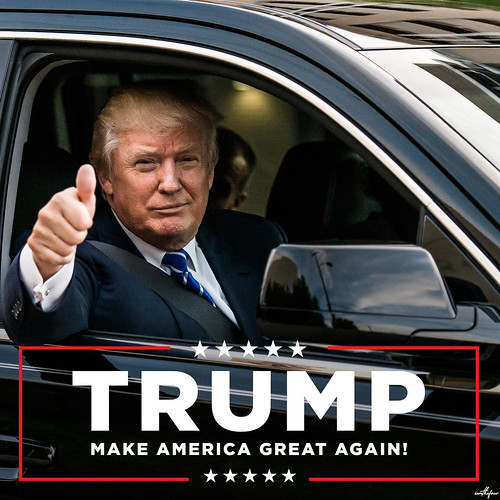Trump taps antitrust hawk Gail Slater to take on DOJ’s blockbuster docket of monopoly cases

President-elect Donald Trump on Wednesday tapped Gail Slater, an antitrust veteran and economic adviser for JD Vance, to lead the Department of Justice’s antitrust division and take charge of a full docket of blockbuster monopoly cases against companies including Google, Visa and Apple.
Slater is expected to continue the department’s crackdown on Big Tech, including cases brought during Trump’s first term in the White House, Trump wrote in a post on his social media platform.
“Big Tech has run wild for years, stifling competition in our most innovative sector and, as we all know, using its market power to crack down on the rights of so many Americans, as well as those of Little Tech!” Trump said.
Slater served on the White House’s National Economic Council in 2018, where she worked on Trump’s executive order on national security concerns over Chinese telecommunications equipment.
Before joining Vance’s office, Slater worked at Fox Corp. and Roku.
Vance, the vice president-elect, has said antitrust officials should take a broader approach to antitrust enforcement, and praised the work of Federal Trade Commission Chair Lina Khan.
Slater grew up in Dublin, Ireland, and began her law career in London at Freshfields Bruckhaus Deringer, which brought her to Washington.
She spent 10 years at the FTC, first as an antitrust attorney where she brought cases to block mergers including Whole Foods’ acquisition of organic grocer Wild Oats, and later as an adviser to then-commissioner Julie Brill, who later became an executive at Microsoft.
Slater also represented Big Tech companies including Amazon and Google at a now-defunct trade group called the Internet Association.
She is still viewed as an antitrust hawk among Washington tech skeptics, who welcomed her appointment.
Garrett Ventry, a former adviser to Republicans in Congress and founder of GRV Strategies, said Slater’s nomination shows Trump is “serious about taking on Big Tech.”
“Antitrust enforcement is here to stay,” Ventry said.
The Tech Oversight project, a group that backed the work of Biden’s DOJ antitrust chief, Jonathan Kanter, said the nomination shows antitrust has staying power as a bipartisan political issue.
“Gail Slater is a strong candidate to continue that work,” said Sacha Haworth, the group’s executive director.
Slater will take over a number of high-profile cases in which some of the world’s largest companies are accused of illegally building and protecting monopolies.
Trump said Slater will “ensure that our competition laws are enforced, both vigorously and FAIRLY, with clear rules that facilitate, rather than stifle, the ingenuity of our greatest companies.”
The appointment would put Slater in charge of the DOJ’s bid to make Google sell off its Chrome browser and take other measures to curb its dominance in online search.
The DOJ filed the case in 2020, during the first Trump administration. But the proposals for fixes came under Kanter.
The judge overseeing the case has said Trump officials will not get extra time to reevaluate the proposals ahead of an April trial.
Google faces a second battle with the DOJ over its online advertising technology, while Apple faces allegations that it monopolized the US smartphone market.
Kanter also filed the DOJ’s first case alleging algorithmic price fixing against property management software company RealPage.
In another case, the DOJ is seeking to break up LiveNation and TicketMaster over practices that prosecutors say harm eventgoers and artists.
Slater would have wide latitude over the cases, though most are also being pursued by bipartisan state coalitions.
A case the DOJ brought in September alleging Visa unlawfully dominates the market for debit card payment processing does not involve state antitrust regulators.
Slater would also be in a position to continue or end probes, such as an investigation into Nvidia, the chip company that rode the artificial intelligence boom to become one of the world’s most valuable companies.






